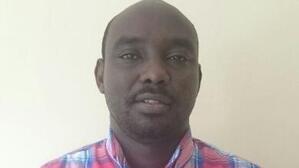Qambemeda Masala Nyanghura

Research Title: Effectiveness and Viability of Conservation Policies in Optimizing Conservation and Social Welfare: A Case Study of Igando-Igawa Wildlife Corridor, Tanzania
Contact: qmnyanghura(at)sua.ac.tz
Abstract:
Biodiversity conservation plays a significant role for sustainability of ecological capital and social welfare of the community. However, the balance between these two roles have often been difficult in areas where land is shared between human and wildlife, resulting to bidirectional negative externalities from human-wildlife conflicts. While agricultural expansion is cited as one of the leading threats to biodiversity in these areas, the marginal returns from agriculture continue to dwindle due to conservation externalities. Different conservation policies have been developed and applied to mitigate conservation externalities with mixed and context specific evidence. The most common policies include compensations, community-based conservation and in some cases resettlement programs for local communities. Of all these policies, compensation has relatively remained to be an important incentive-based policy and often considered as a central theme for wildlife conservation policies formulation in developing countries. The compensation approach used in wildlife context has largely been skewed towards reimbursements of economic loses emanating from wildlife conflicts. This approach has resulted to limited success due to various challenges including moral hazards where compensation removes impetus for farmers to protect their farms and in most cases, compensation incentivizes agricultural expansion, resulting in ambiguous effects on conservation and social welfare. Conservation easement where farmers are compensated for allocating agricultural land for conservation may yield the desired outcome. Conservation easement has yielded promised results in developed countries and can be equated to performance-based payments schemes that have largely applied in forest conservation in developing countries. Success of conservation easement depends on collective actions and therefore cooperative behaviour takes the fundamental aspect of concern. Nevertheless, whether compensation policy will result to cooperative behaviour or not remains controversial, particularly to farmers who are characterized by inequality in land endowment.
While collective actions account for greater policy effectiveness, implementation costs of policies have equally been considered as critical constrains in developing countries. Attempts to inform governments and policy makers to invest in conservation and selection of feasible policy options has largely been based on traditional cost-benefit analyses (CBA). CBA models often considers narrow cost and benefit covariates, omitting intangible variables and often fail to account for complex interaction effects with social behaviours including risks and uncertainties. The effect of omitting variables is likely to results to inefficient and impractical policy recommendations. This study therefore aims to address the following research questions using Igando-Igawa wildlife corridor which joins Mpanga/Kipengere game reserve and Ruaha national park in Tanzania as a case study.
- How does compensation policy affect cooperative behaviour of farmers with different levels of land endowment?
- How do options for communication and punishment in combination with socio-economic characteristics shape cooperative behaviour of farmers with different levels of land endowment?
- Which policy option among CBC, resettlement and compensation is the most economically viable to optimize conservation and social welfare and what are the factors influencing the viability of these policies?
This research project is funded by The German Academic Exchange Service (DAAD)




